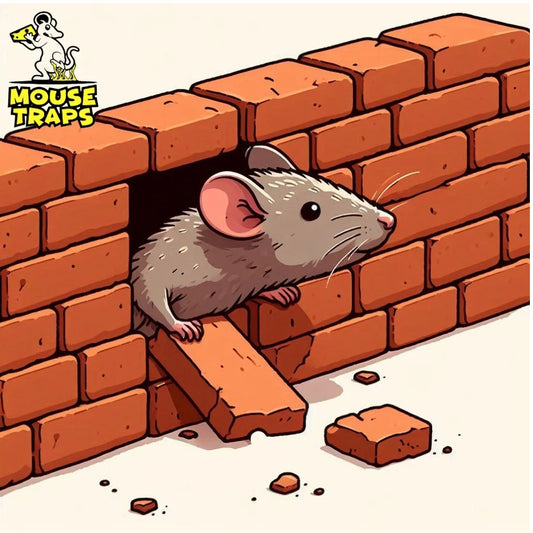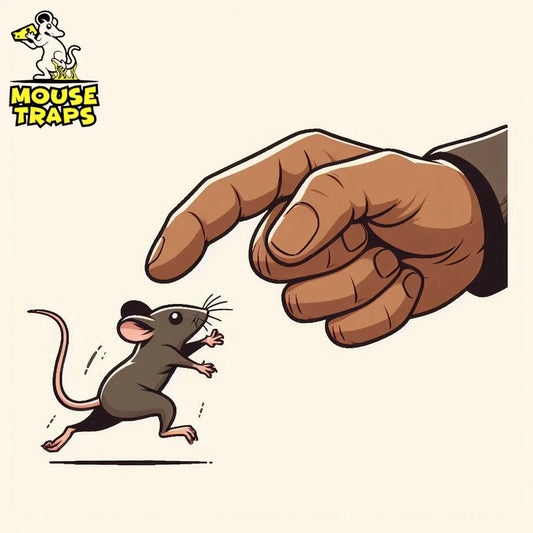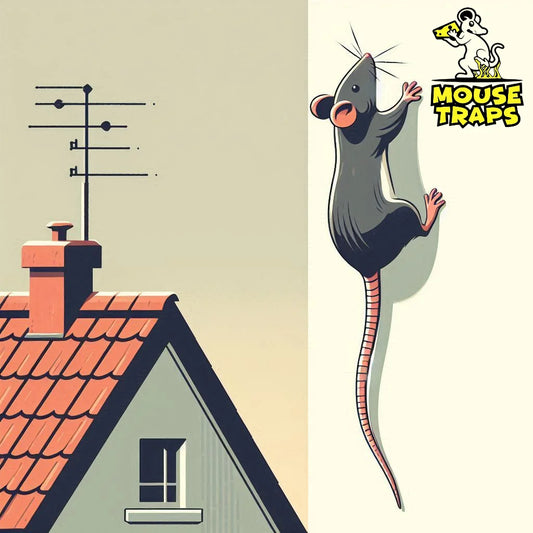Introduction:
Curiosity often strikes when it comes to the adaptability and persistence of rats, especially concerning their ability to gnaw through obstacles. But can rats truly chew through metal or plastic barriers? Lets explore the realm of behavior and dental structure to uncover the truth, behind this issue.
Rodent Teeth: Nature's Remarkable Tools
The first thing to understand is the extraordinary nature of rodent teeth. These tiny gnashers are no ordinary incisors; they're constantly growing throughout a rat's life. Unlike humans, who have teeth with fixed lengths, rats' teeth grow continuously, at a rate of about 0.3 to 0.4 mm per day!

- Rodents have a pair of incisors in their upper and lower jaws.
- The enamel layer on their teeth is exceptionally hard, making them adept at gnawing through various materials.
- To prevent overgrowth, rats instinctively grind their teeth by gnawing on objects, which includes metal and plastic barriers.
The Myth of Indestructible Barriers:
While it might seem like metal or plastic barriers would be impervious to rodents, the reality is quite different. Rats have chewing abilities due, to their front teeth and persistent behavior.

- Metal Barriers: While solid metal may initially appear impenetrable, rats can indeed gnaw through it given enough time. Their teeth can wear down even sturdy metals like steel or aluminum.
- Plastic Barriers: Similarly, plastic is no match for a determined rodent. Rodents have the ability to gnaw through pipes, obstacles and electrical wiring which can pose a risk, to buildings and utilities.
Factors Influencing Rodent Behavior:
To grasp the reasons, behind why rats chew through barriers one must explore their behavior and instincts. Various elements play a role, in their gnawing tendencies.

- Hunger: Rats gnaw to access food sources, so if there's a smell of food on the other side of a barrier, they'll persist until they break through.
- Exploration: Curiosity is another driving force behind rodent behavior. Rats are naturally animals. They tend to explore anything that catches their attention, even obstacles.
- Territory Marking: Gnawing also serves as a way for rats to mark their territory. They communicate with rats. Establish dominance by leaving scent and visual cues behind to mark their territory.
Protecting Your Property: Prevention is Key!
After learning about the chewing skills and motives of rats it's important to consider ways to safeguard your property from these troublesome intruders.

- Seal Entry Points: Conduct a thorough inspection of your property and seal any gaps or holes that could serve as entry points for rodents.
- Use Rodent-Resistant Materials: When possible, opt for materials that are difficult for rats to chew through, such as heavy-duty steel or concrete.
- Implement Traps and Baits: Traps and baits can help control rat populations, but they should be used in conjunction with other preventative measures for optimal effectiveness.
Myth vs. Reality: Debunking Common Misconceptions
Let's dispel some common myths surrounding rats and their chewing behavior:
Myth: Rats can chew through anything.
Reality: While rats have impressive chewing abilities, there are limits to what they can gnaw through. Extremely hard materials like solid steel are beyond their capabilities.
Myth: Plastic barriers are rat-proof.
Reality: Rats can easily chew through plastic barriers, especially if there's a food source or other incentive on the other side.
Note:
Anyhow if rat infest in your property you should take strict steps to deal with them. Use of Mouse Traps can be more effective and efficient while dealing with mouse. Live Humane Mouse Traps and Sticky Glue Mouse Pads Traps are the best options to deal with them.
Live Humane Mouse Traps:
Details: Live humane mouse traps are designed to capture mice without harming them. These traps typically consist of a small, enclosed container with an entry point that allows mice to enter but not escape. Once inside, the mouse triggers a mechanism that closes the entry point, trapping them inside until they can be released elsewhere.
Click Here To Buy Live Humane Mouse Traps

Benefits:
- Humane: Live traps allow for the capture and release of mice without causing harm or stress to the animals.
- Reusability: These traps can be used multiple times, making them a cost-effective and environmentally friendly option.
- Safe for Pets and Children: Since these traps do not use any harmful chemicals or mechanisms, they are safe to use around pets and children.
- No Mess: Live traps typically do not involve any mess or cleanup, as they do not use baits or poisons that can potentially cause odors or contamination.
Sticky Glue Mouse Pad Traps:
Details: Sticky glue mouse pad traps consist of a flat, adhesive surface that captures mice when they walk onto it. Once stuck, the mice are unable to escape from the strong adhesive.

Benefits:
- Effective: Sticky glue traps are highly effective at capturing mice, as the strong adhesive prevents them from escaping.
- Easy to Use: These traps are simple to set up and require no bait or additional steps.
- Cost-Effective: Sticky glue traps are often inexpensive and readily available, making them a budget-friendly option for dealing with mouse infestations.
- No Need for Maintenance: Once a mouse is caught on a sticky glue trap, there is typically no need for further action, such as resetting the trap or disposing of the mouse, until the trap is full.
FAQs (Frequently Asked Questions):
Do rats chew through plastic pipes?
Yes, rats can easily chew through plastic pipes, making them vulnerable to infestation.
Are there any materials that rats can't chew through?
Extremely hard materials like solid steel are generally beyond rats' chewing capabilities.
How can I prevent rats from entering my property?
Make sure to seal off any entry points opt, for materials that rodents can't easily chew through and set up traps and baits, as part of a prevention plan.
Why do rats chew through barriers even when there's no food on the other side?
Rats are naturally curious creatures and may chew through barriers out of exploration or territorial marking instincts.
Conclusion:
To sum up determining if rats can chew through metal or plastic barriers isn't a straightforward yes or no answer. Although rats have chewing skills and can nibble through materials there are ways to safeguard your belongings and reduce the chances of an infestation. By grasping behavior and putting strategies in place you can keep these persistent critters away and uphold a rodent free space.




